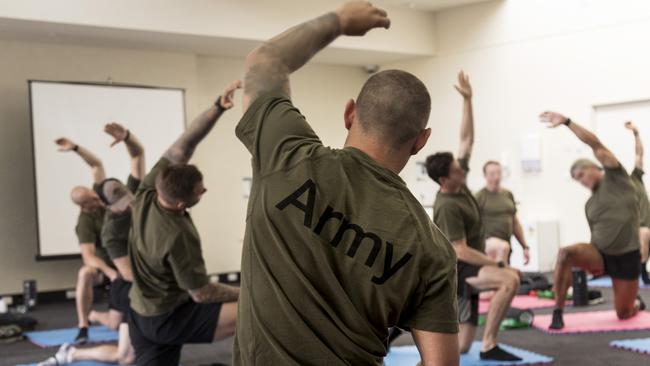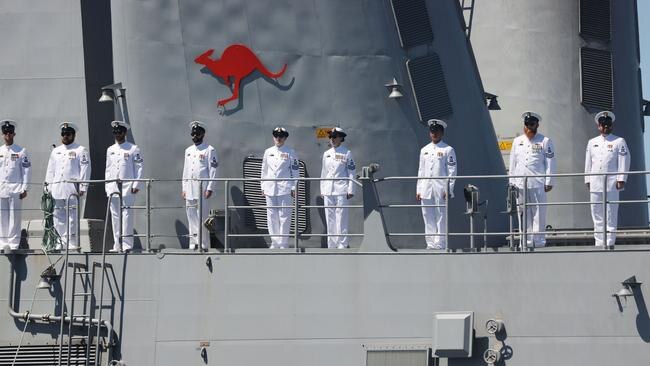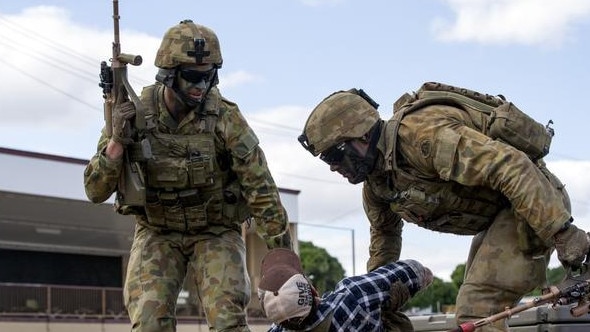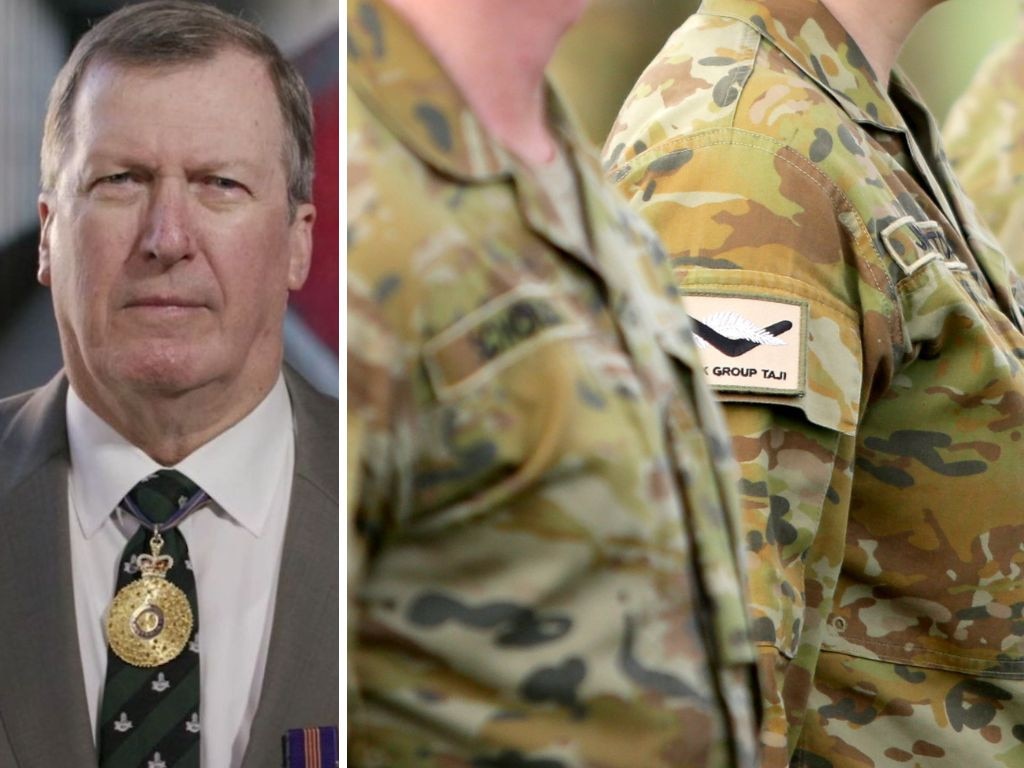
Australia’s defence is at risk due to delays in acquiring the capabilities needed to meet the clear and present danger.
A failure to meet new recruiting and retention targets for the Australian Defence Force will further jeopardise our security.
What if we have a war and the equipment isn’t there and there aren’t enough motivated and trained people in uniform?
Within the present ADF military strength of about 58,000 there are personnel shortages across many elements of the force. Incoming capabilities require more people. While technology may moderate the demand, the force needs to grow.
To resolve the situation the government has approved an ambitious workforce plan to increase the total defence workforce by 18,500 to more than 101,000 by 2040. It is estimated recruitment needs to increase from approximately 5500 people to 9000 people each year. Retention needs an increase in the median length of permanent ADF service from about seven years to about 12 years. These targets will be very hard to achieve.

The new ADF plan contains sensible initiatives and enhancements to pay, allowances and bonuses. Steps are also under way to shorten the time from expressing an interest in joining to enlistment and commencing training. Two other actions that should be considered are the reintroduction of the Ready Reserve scheme and the development of a lookalike GI Bill to provide tertiary and vocational training for those leaving the ADF.
While the mechanics of recruiting are being improved it is uncertain whether this will be enough to achieve the targets and guarantee our ability to field new capabilities and operate them on future battlefields. There is something else at play. Surveys such as the Scanlon 2023 Social Cohesion Report identified a declining sense of pride and belonging in Australia. It also reported a declining trust in government.
A big issue about who will fight for Australia is the dilution of an Australian identity. Witness the active debate about the legitimacy of Australia Day, including the intentions of a former minister for defence and current high commissioner. Stephen Smith initially indicated he would not attend an Australia Day dinner, before reversing his decision.
Military service is about purpose, values and loyalty. It is about service and sacrifice, and contributing to something bigger than yourself. It is also about fighting and the application of lethal force on the battlefield. ADF recruiting commercials are muted on this nature of military service.
Recruiting advertisements resemble lifestyle commercials and emphasise what the ADF can do for you. Not much mention of what you can do for Australia.
One problem is that the dominant theme of the advertisements is the ADF, which is a big-picture strategic level HQ with an organisational and political construct.
Recruits join armies, navies and air forces. Why hide early career service away at the point of first interest? Why not focus the advertising on units and sub-units where service, team, pride, fighting spirit and traditions reside and the hard work is done.
What is our sense of being Australian if it is not about being part of a team, committing to the group and contributing to something bigger than oneself? Broadly across the community we are encountering a sense of entitlement and self-indulgence, suggesting that the nation owes a debt to individuals. There are too many identities and too many flags. Whether it harks back to place of origin or some narrow interest-motivated sentiment, too many people and groups want special treatment. It doesn’t leave much room for Australia.

Some perspectives on social cohesion focus on electoral prospects rather than building and strengthening brand Australia and unifying the nation. Identity has become defined by victimhood and is associated with the wrong that has been done to you.
In the broader economy, relatively full employment doesn’t help recruiting, nor does the reputational damage to the ADF from alleged war crimes and unacceptable behaviour. Criticism, while due, is overdone and has generated a negative attitude towards joining the ADF. Conscription is an option, but it should be seen as a last resort.
Australia’s future security will depend on our ability to have the right equipment and the right people at the right time. At present, both are at risk. As well as improving the mechanics of recruiting, the more important task is to restore a sense of pride and belonging in Australia and a desire to serve the nation. This is a job for the government.
Peter Leahy is a former chief of the Australian Army and a professor at the University of Canberra. He is the chair of the RSL’s Defence and National Security Committee.






